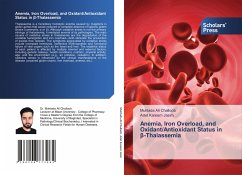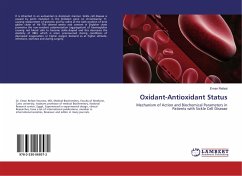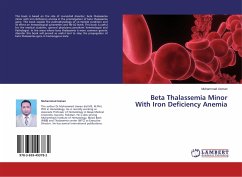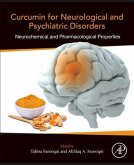Thalassemia is a hereditary hemolytic anemia caused by mutations in globin genes that cause reduced or complete absence of specific globin chains (commonly, or beta). Although oxidative stress is not the primary etiology of thalassemia, it mediates several of its pathologies. The main causes of oxidative stress in thalassemia are the degradation of the unstable hemoglobin and iron overload-both stimulate the production of excess free radicals. The symptoms aggravated by oxidative stress include increased hemolysis, ineffective erythropoiesis and functional failure of vital organs such as the heart and liver. The oxidative status of each patient is affected by multiple internal and external factors, including genetic makeup, health conditions, nutrition, physical activity, age, and the environment (e.g., air pollution, radiation). In addition, oxidative stress is influenced by the clinical manifestations of the disease (unpaired globin chains, iron overload, anemia, etc.).








